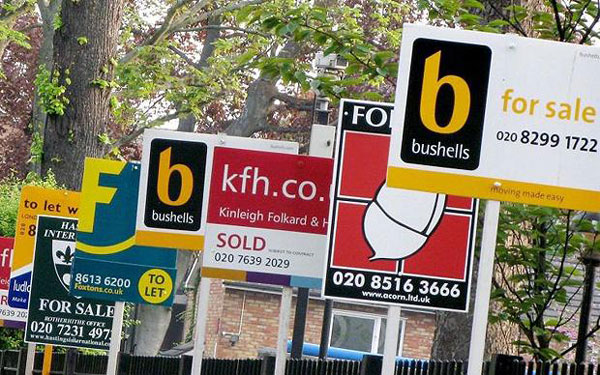Blog
BLOG: Is the UK’s mortgage boom sustainable?

The UK is in the midst of a mortgage boom – a surprising revelation, perhaps, given the economic volatility driven by the Covid-19 pandemic.
However, the evidence speaks for itself. According to recent figures from the Financial Conduct Authority (FCA), mortgage approval rates are rising at a rapid rate, with the value of new mortgage loans given to borrowers totalling £83.3bn in Q1 2021 – a marked increase of 26.5% from Q1 2020.
As such, confidence in the property market is rising, which is in turn driving up house prices. Indeed, UK property prices rose by nearly 10% year on year in May, according to the Land Registry.
However, this boom did not happen by chance. The government has gone to great lengths to ensure that the market remained stable throughout even the worst of the pandemic.
Cutting stamp duty
Throughout the various lockdowns, the UK property market was able to remain open. With some adjustments, this meant that people were still able to view properties and move house, provided that they complied with social distancing rules. That said, whilst activity did not grind to a halt, it did slow dramatically throughout the first lockdown, and intervention was needed.
In July 2020, the government announced cuts to stamp duty. This meant that people purchasing properties valued up to £500,000 would not pay any stamp duty, facilitating potential savings of up to £15,000 until 30 June 2021. Whilst cuts to stamp duty have since been tapered down, people purchasing a property valued up to £250,000 will still be exempt from paying stamp duty until 30 September 2021. This policy has driven a surge in property transactions throughout the past 12 months, with 114,940 transactions completed in May 2021 alone.
Evidently, the reduction in stamp duty has been an important factor in restimulating activity within the property market. However, there has been another vital component, enabling many people – and particularly first-time buyers – to enter the property market throughout this period: improved access to mortgages.
Improved availability of credit
For many first-time buyers, the main hurdle to purchasing a property is securing a mortgage. A survey of more than 600 aspiring homeowners, conducted by NerdWallet, revealed that almost one in 10 had tried and failed to purchase a property during the stamp duty holiday. This suggests that stamp duty cuts alone were not enough to reignite activity amongst first time buyers.
Consequently, steps were taken to make credit more readily available. In particular, April 2021 saw the introduction of government-backed 95% mortgages for first time buyers. This scheme meant that aspiring homeowners with a 5% deposit were able to access 95% loan-to-value mortgages.
Unsurprisingly, this scheme has been incredibly popular amongst first time buyers – NerdWallet’s research found that the majority (57%) of prospective buyers plan to take part in the scheme.
In addition to improved access to mortgages are low mortgage rates, to record low base rates of 0.1%, making borrowing more affordable for consumers.
These initiatives have played a great part in keeping the property market afloat throughout a challenging economic period. However, as the property bubble continues to grow, there have been concerns about its sustainability.
Is the boom sustainable?
Whilst the government’s actions have proven vital in facilitating the property market’s success throughout the pandemic, these initiatives will inevitably come to an end at some point with significant impact on the property market.
For example, the tapering off of stamp duty cuts could result in more demand for affordable properties, especially those targeted at first time buyers, given stamp duty’s costly addition to any property purchase.
The government-backed 95% mortgage scheme is also a temporary incentive, due to end in December 2022. As a result, we could potentially see a decline in first-time buyer activity following the closure of this scheme.
As such, it is likely that the UK may see a decline in house prices within the next few years as market activity slows. That said, the Bank of England is taking precautions to ease any potential panic, stressing that interest rates are unlikely to rise in the immediate future. This should help to keep mortgage rates low – a decision which will no doubt be welcomed by borrowers.
The key for many Brits will be to remain calm, and not rush into any mortgage deals that appear cheaper only at face value. It is important to remember that although they make securing a mortgage more accessible, low deposit schemes come with their own risks, such as a higher debt burden and the possibility of negative equity.
Instead, individuals should take their time and conduct thorough research into all the mortgage options available to them, to ensure that they find a mortgage that best suits their long-term financial needs.
Denise Ko Genovese is senior personal finance editor for NerdWallet UK